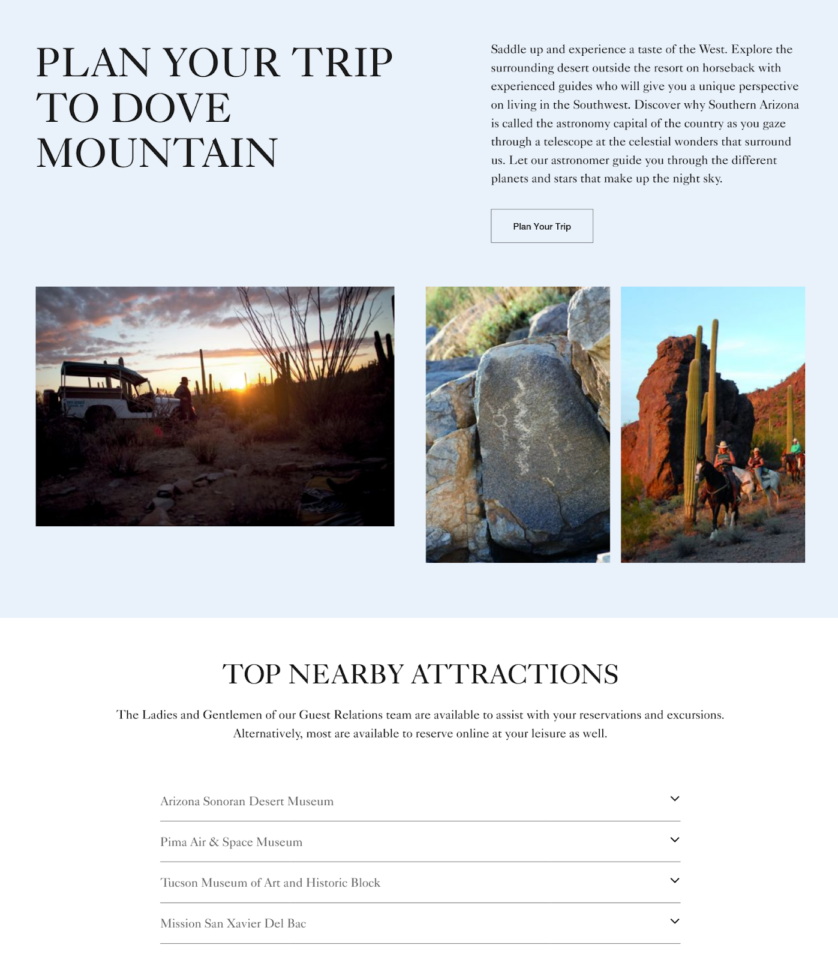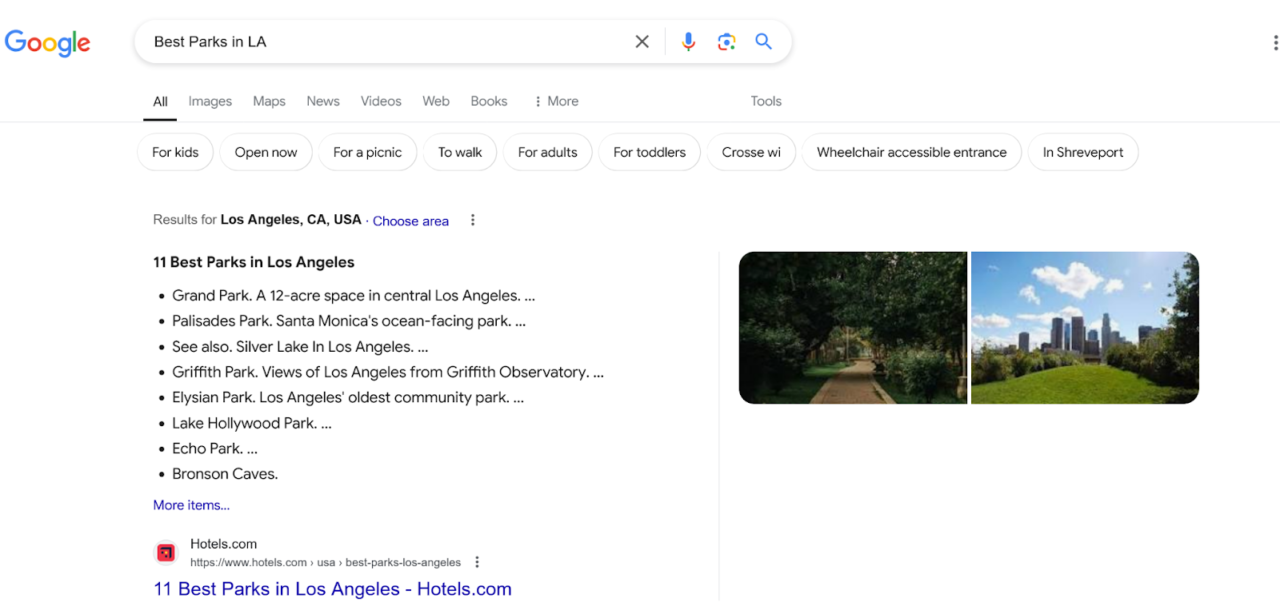
Content Marketing For Local SEO: 7 Tips For 2025
As consumers seek personalized experiences, prioritizing localized content becomes essential. This strategy allows you to connect deeply with local cultures and preferences, making your brand more authentic and relatable.
But let’s be clear: localized content goes beyond simply inserting location names into existing materials. It requires a genuine understanding of your local audience’s needs and interests, along with addressing region-specific issues.
By doing so, you can enhance your online visibility in local search results while building customer trust and loyalty.
This guide will explore effective content marketing strategies for creating localized content that can elevate your local SEO strategy.
Why Content Marketing For Local SEO Matters?
Content marketing for local SEO is crucial for your business. Here are some reasons why:
Improves Local Presence
Crafting top-notch, localized content helps your content appear in location-based search results and on Google Maps, increasing your visibility to nearby clients. This, in turn, makes it easier for more local customers to discover your website.
It also boosts brand awareness and credibility, establishing your business as a reliable authority.
As a result, you can enjoy stronger brand loyalty, better customer retention, and more word-of-mouth referrals from local customers.
Reaches Target Audience
According to local SEO statistics, 98% of consumers turned to the internet to find information about local businesses in 2022, a notable increase from 90% in 2019.
With such a high percentage, optimizing your content for local search ensures your business reaches the right customers easily.
Stands Apart from Competitors
64% of small businesses have a local SEO presence. That means when your content appears in local search engine results, you edge out the 36% that don’t care about implementing a local SEO strategy. That might seem like a small percentage, but in this market where there’s cut-throat competition, one nearby business you edge out in the search engine visibility game can mean a lot.
7 Effective Content Marketing Ideas for Local SEO
As we dive into effective strategies for boosting your local SEO, it’s essential to focus on content marketing that resonates with your local community. Here are six impactful ideas to help you create content marketing for local SEO.
Build a Local Content Marketing Calendar
Building a local content marketing calendar helps you stay organized and consistently create relevant content for your local audience.
To start, clarify your marketing goals—boost brand awareness, drive traffic, or generate leads.
Then, identify who your target audience is and what topics or types of content are most likely to resonate with them. Conduct market and local keyword research, analyze demographic data, and gather feedback from your customers to understand their preferences.
Also, recognize key local holidays and community events, both annual and seasonal.
Next, generate a list of local content ideas that align with your goals and are tailored to your local audiences. Consider a mix of different types of content, such as blog posts, videos, infographics, social media posts, and more.
For example:
- Blog Posts: Write articles that explore local community events, traditions, or seasonal activities.
- Social Media Posts: Share updates, promotions, or engaging content related to local happenings.
- Videos: Create short videos showcasing local events.
Further, decide how often to publish and create a schedule that considers seasonality and local events. Use a digital calendar or powerful tools like Notion, Trello, or CoSchedule to outline your content. Include date, type, topic, relevant audience, distribution channels, and status.
Check out this content calendar example for your reference.

If you’re working with a team, clearly define roles to ensure everyone is aligned. Finally, use analytics tools to measure metrics like traffic and engagement, adjusting your calendar based on what works best.
Localize Web Content
Localizing your web content means tailoring your website to suit the language, culture, and preferences of your local audience.
For instance, if your target audience speaks English, the content should flow from left to right. In contrast, for readers of languages like Arabic, the layout should be right to left. This simple adjustment enhances readability and shows respect for cultural norms, making your content more engaging.
To localize your content for local SEO, leverage tools such as SEMrush, Ahrefs, or Google Keyword Planner to identify the local search terms your target audience is using. Here’s an example of what you can get from Ahrefs:

You can also type your local search term into Google and analyze the suggestions that appear. This process reveals what users are searching for in your area.
As you type, Google offers autocomplete suggestions based on popular queries related to your term, helping you identify common questions and keywords.
Here’s an example to illustrate this:

From there, leverage this insight to create dedicated landing pages for different services, each specifically optimized for local searches.
For example, ESPA Skincare has a dedicated page for Southern Arizona, with every section optimized for the local area. They include highlights such as the top nearby attractions, enhancing the relevance of their content for visitors.

Additionally, utilize FAQ pages to effectively localize your content. Include region-specific questions and answers, and be sure to incorporate relevant keywords to boost search visibility. This enhances the user experience while naturally incorporating your target keywords for better SEO.
For example, Zachary’s added a popular question, “How do I cook a half-baked pizza?” to its FAQ section. This could enhance its chances of appearing in search results.

You can leverage AI tools, such as a conclusion generator, to effectively summarize your key points and incorporate them into your FAQ page.
Another great local SEO content strategy is to create local guides related to your business. For example, if you run a hotel, you could create guides that feature popular tourist attractions, hidden gems, or outdoor activities in the vicinity.
For instance, Hotels.com is ranking for the keyword “Best Parks in LA” by creating a guide titled “11 Best Parks in Los Angeles.”

However, ensure you address common questions from your audience when crafting these guides.
For instance, if you’re creating a guide about local parks, you might include answers to questions like, “Are there dog-friendly areas?” or “What facilities are available for families?” Addressing these inquiries enhances the utility of your guide and builds trust with your readers.
Leverage Visual Content for Brand Awareness of Local Businesses
Don’t just rely on the written word as part of your content marketing for local SEO. Make sure you leverage visuals, too. There are several factors influencing consumers’ decisions about a business when they look at local search results.
So, when crafting your blog posts, guides, and other content marketing pieces, include visuals that complement them. These visuals can range from pictures to videos and graphs. Check out this sample blog post. It uses images to make the concepts explained in the article easier to understand:

You can also use videos to educate your target audience, as Texas Family Roofing does below:

Make sure the visuals you use are high-quality, too, of course. Don’t forget to compress them so you can help reduce your site’s loading times. Also, use responsive images for different screen sizes to enhance the user experience.
Optimize All Web Content
Many people search for services in their local area, so you must optimize your website content for local keywords.
To effectively optimize for local search engine optimization, include local keywords that reflect your specific geographic area.
Phrases like “best lawyers in the Bay Area” can significantly enhance your local visibility compared to broader terms like “best lawyers in California.” You can use tools such as Frase to optimize your web content for your target keyword:

Frase gives recommendations to increase your chances of ranking in SERPs for that keyword, such as the number of words, headers, links, and images your article should have. It also gives you a list of other keywords you should incorporate into your copy and their corresponding volume. The tool also rates your copy based on how well it’s optimized for your target keyword.
You can even ask the tool to recommend subheadings you can use for your article to boost your optimization efforts:

These recommendations enhance your content, improving your overall local SEO performance.
Use your target keywords in your URL, website copy, meta tags, and image alt text to signal to search engines that your business is relevant to local search queries.
Engage with Local Audience on Social Media
Social media engagement may not directly impact local SEO rankings. But it can help with local search visibility.
Engagement metrics—like likes, shares, comments, and customer reviews—act as social signals that get the attention of search engines, increasing the chances of your brand appearing in search results.
Here’s an example: when I searched for “bakery in Fort Worth, Texas,” this Facebook profile appeared in SERPs:

If you check out its profile, you’ll find its posts generated significant likes, shares and comments from social media users:

It has over one thousand customer reviews, too:

In other words, engaging with your audience on social media can help boost your brand visibility in search engine results.
You can do this just by posting great local SEO content. Share details about upcoming festivals, community gatherings, and other happenings in your neighborhood.
For instance, Bre’s Sweet Treats, which sells baked treats in Fort Worth, Texas, regularly shares Instagram posts showing organized public markets and local conferences:

If possible, spotlight local artists, musicians, or entrepreneurs in your posts. Go live during events to capture real-time experiences.
Don’t forget to use area-specific hashtags to boost your discoverability. Incorporate city names, neighborhood tags, and local event hashtags to connect with your community.
Another way to engage with your audience on social media is to literally interact with them, of course. When they have questions, answer them.
Valentino’s Floral & Events, for instance, which offers floral arrangement and event services in Beaumont, Texas, answers questions even if they’re completely unrelated to what the company does:

If they compliment you on something, thank them, just like what ZC for Hair, which offers hair services in the Bay Area, does:

What if they give you a bad review, like this one?

Respond anyway, just like Helen Bernhard Bakery did above. Show that you care about what your customers think and are willing to improve for them.
Sponsor Local Events and Promote Your Brand Locally
Sponsoring community events can increase brand exposure as your logo and brand reach a diverse audience and create lasting impressions. It’s great for local SEO, too. After all, your brand will likely get featured on the organizer’s site, which may link to you. Backlinks can help boost local SEO.
For instance, these local businesses sponsored the Mesa Marathon, which is held annually in Mesa, Arizona. So, the Mesa Marathon site featured their logos on their pages. These logos link to those businesses’ respective sites so those interested may know more about them:

These events can help boost your local SEO in other ways, although indirectly. With sponsorships, you can gain massive brand exposure through other channels.
For instance, two local businesses based in Dover, New Hampshire–InMotion Chiropractic and Body Mechanix Massage–became major sponsors of a local marathon called Red’s Race. So, apart from getting featured on the actual event’s tarpaulin, the brands also got a shoutout from the Red’s Race Facebook page:

Here’s another example: These local businesses sponsored an auction held by a school in Livermore, California. They gained even more exposure when their logos were featured prominently by the school on one of its bulletin boards:

As a result of this massive brand exposure, you can easily pique the interest of potential customers, who may go to your own website to check you out. If they stay for long, you can reap SEO benefits. Google pays close attention to dwell time.
To further increase brand exposure, announce your sponsorship across your own marketing platforms–from your email newsletters and website to social media platforms. Share event details and invite your audience to attend.
This is exactly what Billings Clinic in Bozeman, Montana does.

It also leaves a link to make it easy for those interested to sign up for the event:
Use event-specific hashtags and tag the organizers in your social media posts. Furthermore, share behind-the-scenes content to highlight your brand’s involvement and generate buzz.
After the event, you can create recap posts featuring photos and testimonials and thank the organizers and attendees for their participation. This keeps the conversation going and reinforces your brand’s connection to the community, again helping brand exposure for SEO.
Write for Local Publishers to Generate Quality Backlinks
As I briefly mentioned earlier, backlinks are incredibly valuable, signaling to search engines that your website is a trusted source. Thus, consider contributing guest posts to local blogs and websites within your niche to secure quality backlinks.
When creating content for local publishers, prioritize topics that are relevant to their readership, offering valuable insights that showcase your expertise.
For instance, Redfin, a real estate mortgage company that also offers services in the Chicago area, discussed the importance of sewer scope inspections before buying a home in its guest post for Rescue Plumbing:

The choice of topic makes sense since one, Rescue Plumbing readers are primarily interested in, well, plumbing, and two, it’s a topic Redfin knows fully well.
Here’s another example.
Jesse Donnelly offers hair care services in Glastonbury, Connecticut. So, her guest post for Independent Savvy, an insurance and lifestyle blog, was about winter hair care, a favorite lifestyle topic she’s knowledgeable about.

Apart from blog posts, you could develop shareable content like infographics and educational videos that local publishers will find useful. This type of content is more likely to be referenced and linked across various sites.
Finally, establish connections with local journalists and bloggers by engaging with their work—commenting on articles, sharing their content, and attending local networking events.
Building these relationships can lead to collaborations, interviews, or features that can lead to more backlinks to your site.
Ready to Kickstart Content Marketing For Local SEO?
Start by building a local content marketing calendar and localizing your web content. Next, optimize your web content for search engines using tools like Surfer and Frase.
You can also start creating visual content to build brand awareness and engage potential customers. Visual content will work exceptionally on social media. Sponsoring local events and writing for big publications within your area can also help you generate quality local backlinks.
But hey, if you’re short of time, you can hire local SEO professionals to help you get results faster. Contact us to get a free audit.

Author: Nico is the founder of Launch Space. The company works with enterprise SaaS clients, helping them scale lead generation globally across EMEA, APAC, and other regions. When not strategizing growth, he enjoys building practical tools like the Domain Name Generator.
Table of Contents
Related Articles
Dominate Your Market with Digital Marketing Services That Deliver
Talk to a certified professional today, and we will design a strategy specific to your case.





